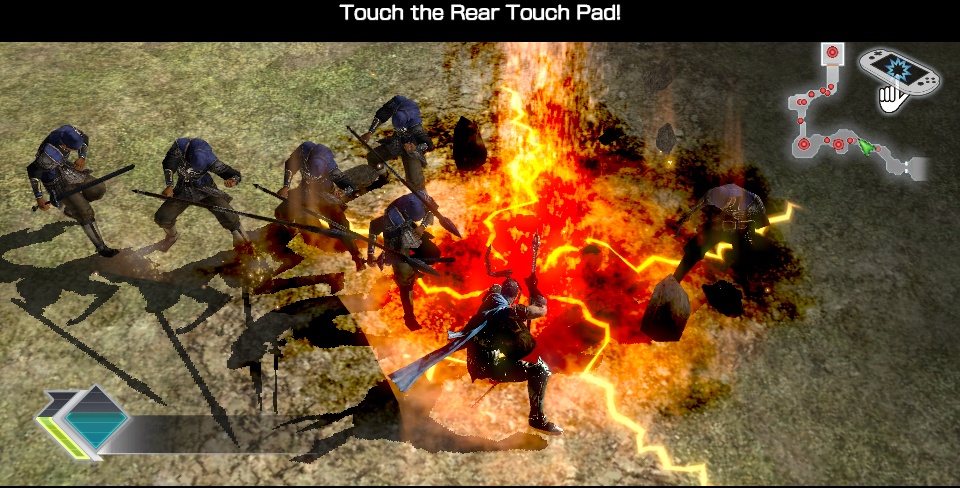Q&A With SCEA's Tetsuhiko Yasuda
We talk with the president of Sony Computer Entertainment Asia about the partnership with Nanyang Polytechnic and other Sony-related topics.

During the Sony Computer Entertainment Asia (SCEA) and Nanyang Polytechnic five-year MOU press event held in Singapore recently, GameSpot Asia managed to have a chat with SCEA president Tetsuhiko Yasuda. The 15-year veteran of the game industry talked about SCEA's reason for starting up the game resource centre in Singapore as well as other Sony-related topics like the PSN and PS Vita from a regional perspective.
GameSpot Asia: What made you target Singapore and not other Asian regions in terms of this type of development and partnership? Why Singapore?
Tetsuhiko Yasuda: This five-year partnership is anything but money-related. The Singaporean people are aggressive and diligent, thus they want this partnership done. Think of it more as a long-term friendship between a company and a learning institute.

GSA: Regarding the PSN, why are there still Japan-language games despite the fact that Asia is known to have a sizable English-speaking community?
Yasuda: There are so many Japanese games not localized. But publishers overseas are eager to see localized products because we are making the official product market. We are trying our best to have the US English versions of certain titles (PS One titles or otherwise) onto the Asian PSN stores to coincide with the Japanese versions, but we can only afford to cherry-pick certain titles.
In a broad sense, it's really hard to get copyright and licensing clearances for these titles with involved third-party developers and publisher technical support after putting it out on the PSN. It's not easy negotiating terms that suit both our needs and theirs.
GSA: Given the PlayStation Vita's graphics capabilities, are there any concerns about its battery life? How long is it?
Yasuda: Unfortunately, I cannot reveal anything at this moment, but we are really working on the battery life problem as we speak. Our primary concerns are endurance and recharge time to appease to the core gamers. We can't describe how long the battery will last, but rest assured we're definitely working on it.
GSA: For Singapore developers, why do you figure that they have an edge in helping Sony out against the competition?
Yasuda: At this point in time, Sony owns 70 percent of the software market in Asia. Our objective is to cultivate the market and expand it around the whole of Asia while using Singapore as our starting block since it's a middle point to the rest of the region. Asia too consists of a lot of countries with varying tax systems that are delicate to handle.
Regarding sales for titles, we rely on the local media to spread the word of these developed games to core gamers because they are wary when an official company advertises through hype. We are capable of handling that problem by just finishing a product, distribute it, and let word-of-mouth handle the rest.
Piracy is still a problem on our side though. We always experience the negative impact of it, so our first priority is to keep the copyright safe from being abused. From a business point of view, it's slowly blooming so we're taking our time in cultivating this culture and system with local authorities and the MDA too. Local-made content will be sold to local gamers, and if a game has great reception outside of the country, it will eventually be on other regions on PSN.
I always end up really tired after discussing about furthering plans with MDA and NYP because of the fact that we always want to be involved in every discussion involving future developments in game-making. I think of myself as the father in this new family group, especially since Singapore's environment in these dealings emanates that "family" feeling.
Like I said, all of this is taking its time, but it's blooming.

GSA: With the sales of 3DS being mediocre worldwide and the rising trend of iPhone and iPad gaming, do you feel threatened by Apple's dominance in the mobile gaming market?
Yasuda: We are well aware of the situation of iPhone and Android games. The PS Vita has a good controller on it, so we believe the core gamers will love all types of game genres being played on the portable. To play those kinds of games properly, we believe that our system is equipped with the necessary features for that experience.
We know that the casual market is there and is really growing, but most of [these games] require just one hand. We are targeting the core group first, and we believe that the traditional style of play [via tactile feedback controllers] is still a valuable commodity in the market. At the moment, we don't believe that they are threatening us at all.
As for the 3DS sales and marketing, I can't speak for the company as a whole. The only thing I can say is that Sony has not considered adding 3D for the PS Vita. Also, from my own point of view, playing with 3D on can be tiring for the eyes.
GSA: Will Asia be following Japan's PS Vita release schedule, which is by the end of this year?
Yasuda: I will try my best to do so; almost the same [schedule] at the very least (grins).
Got a news tip or want to contact us directly? Email news@gamespot.com
Join the conversation